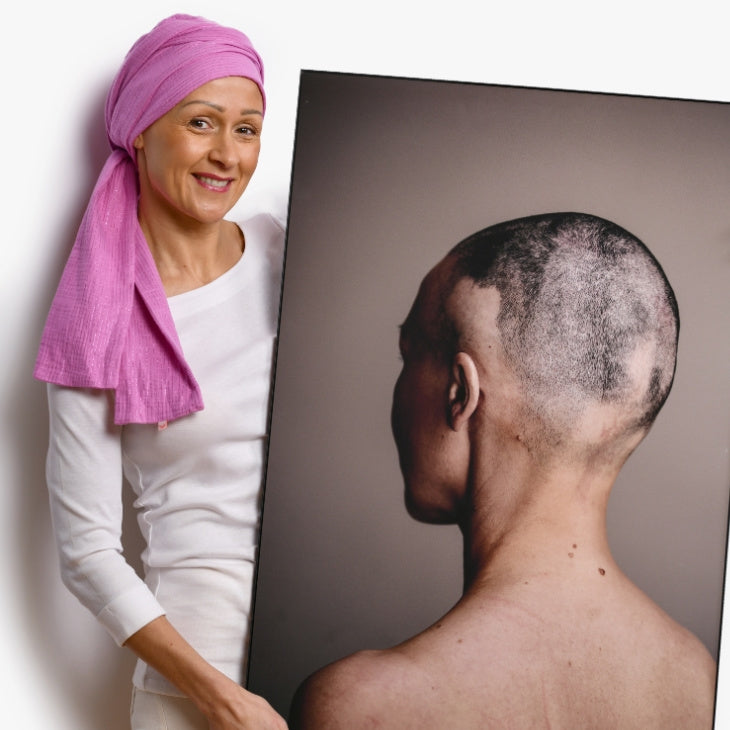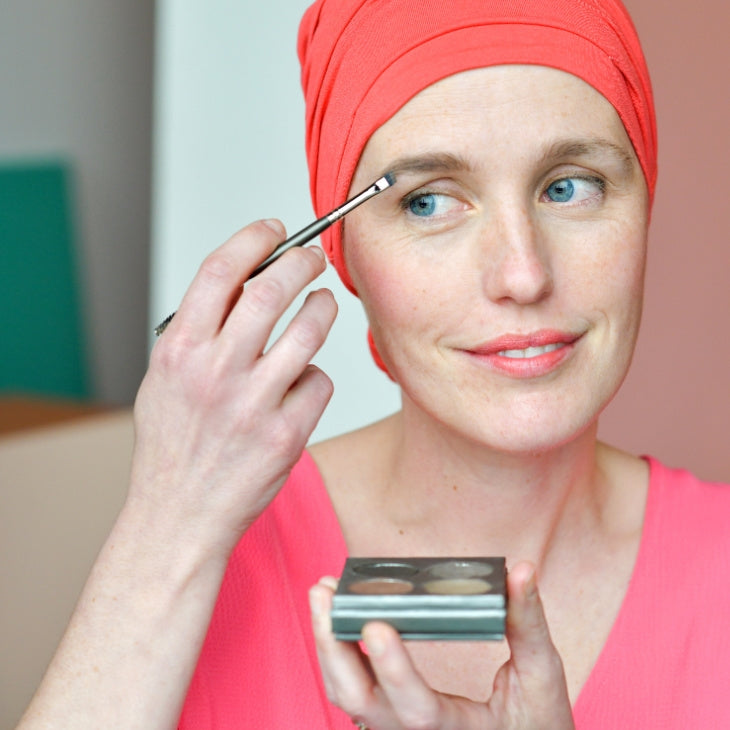Sophie (31) and Liesbet (48) wanted to return to work after cancer, but both struggled with doubts and questions. Through the organization Rentree, they found a coach to guide them toward a job that suited their new situation.
Sophie shifted from a full-time to a part-time job in a call center
Sophie Franssens worked in a call center and had just received a permanent contract when she was diagnosed with breast cancer in April 2019. Sophie: “Luckily, we caught it early. There were no metastases, and we started chemotherapy immediately. Afterward, I had surgery followed by radiation treatments. My treatment was completed by early February 2020. I then took time to recover and rest. By November 2020, I was ready to return to work.”

Struggling with concentration due to “chemo brain”
The hospital psychologist told Sophie about Rentree (more on them below). She reached out and scheduled an appointment with coach Mieke. “Together with Mieke, I assessed the limitations I faced because of cancer and its treatments. In a simulated work environment, I could test what it would be like to get back to work. That day went quite well: I received positive feedback about my teamwork and my ability to handle administrative tasks. We also looked at how I would cope with stress and where challenges might arise. The biggest issue for me was staying focused for long periods. I struggle with ‘chemo brain’ and can’t concentrate as well as I used to.”
With coach Mieke to meet her employer
“Coach Mieke reached out to my company’s HR department, and we set up a meeting together. We discussed which projects and tasks would be the best fit for me. That conversation was very valuable for both me and my employer.” Sophie started back gradually: at first, four hours a day, four days a week. After two months, she moved to five days a week, still four hours per day. “That went okay at first, but I quickly realized that a call center environment is very stressful for me. Procedures change daily, and there’s so much to remember — something I still find challenging.”

Chasing a dream after breast cancer?
“Mieke has always been there for me whenever things get tough. Together, we’ve been mapping out my talents, what gives me energy and fulfillment, and what I need in a job. I recently filled out a long online questionnaire to help with that. The results give me a clear direction and will guide me toward a job that truly suits me.”
“My employer has been very understanding, even right after my diagnosis and throughout my treatment. But we both see that my memory isn’t what it used to be, and even this part-time call center job demands a lot from me. I still view my job positively, but in the long run, I’ll likely move in another direction. Since childhood, I’ve wanted to become a massage therapist. Going through cancer has only made me more determined to make that dream come true.”
Liesbet switched careers and started working in education
Before she became ill in February 2018, Liesbet De Kock worked part-time at a large bank as a customer advisor while also running her own movement therapy practice on the side. “Because of breast cancer and its complications, I was at home for nearly three years,” Liesbet explains. “I only started working again in September 2020. Chemotherapy and radiation severely weakened my body. I suffered fractures and had to undergo several surgeries.”

Time for a change
In January 2020, Liesbet contacted Rentree. “The coach at Rentree helped me get back into the workforce. Now I work part-time in the administration office of a school district. I’ve let go of both my private practice and my job at the bank. At the start of my diagnosis, my employer was very supportive — both the branch manager and my colleagues. But after six months, the team had changed so much that I lost touch with my workplace. For two and a half years, I didn’t hear anything from them. That was an extra push for me to look for a completely new job.”
Understanding the impact of cancer treatment
“The coaches at Rentree really understand what cancer treatments do to a person, physically and mentally. The effects of hormone therapy and chemo shouldn’t be underestimated. I realized I no longer had the energy to restart my private practice. And my part-time bank job didn’t fulfill me either. Physically, managing two part-time jobs was no longer sustainable.”
“I deal with emotional ups and downs, went into early menopause, still experience fatigue and pain, and have less energy overall. Breast cancer is often portrayed as a type of cancer you recover from quickly, as if you just ‘walk through chemo’ and ‘cycle through radiation.’ Doctors rarely inform you about the long-term effects. It wasn’t until later that an oncologist told me that younger patients under fifty often experience much more fatigue afterward.”

Support during job applications
“Together with my Rentree coach, Annelies, we mapped out my skills and strengths. We explored what truly matters to me in a job. After being away from work for so long and going through such an intense health journey, I felt incredibly insecure. Annelies’ advice on writing my resume and cover letters gave me the push I needed. Her support during the job application process made me feel like I wasn’t alone. The second job I applied for turned out to be a perfect match.”
What is Rentree?
Rentree is an organization that helps people diagnosed with cancer return to work or stay employed. Whether you’re an employee, civil servant, self-employed, or job seeker, Rentree provides specialized coaching to help you find work that suits your new physical and mental situation.
This could mean switching careers entirely or adjusting your current role to fit your needs. Rentree also informs you and your employer about rights, obligations, and potential support measures. The program is coordinated by Sterpunt Inclusief Ondernemen in collaboration with VDAB and Kom op tegen Kanker. Thanks to VDAB’s support, coaching with Rentree is free for cancer patients. Learn more at www.rentree.eu >>
4 tips from Rentree
- Communicate with your employer about your illness and treatment as soon as you’re diagnosed, and try to maintain that dialogue with your employer and colleagues throughout your treatment.
- Consult with your doctors about what will be realistic for you professionally after or even during treatment, and share this information with your employer to prepare your return to work together.
- Don’t jump to conclusions about whether you’ll be able to work again. By involving an external service like Rentree, you and your employer can discuss returning to work as a shared responsibility — without guilt or blame.
- Even after you’ve returned to work, keep communication open between all parties. How is your (part-time) return going? Are further adjustments needed? Can you gradually increase tasks or hours?
And one final thought: openness is everything
“Anyone who has gone through cancer treatment and wants to return to work often faces uncertainty,” explains Rentree coach Ingmar De Maertelaere. “Cancer can impact memory, multitasking abilities, energy levels, and how you handle busy environments. Many people wonder: will my job still be doable? Because the effects are often invisible, and you’re officially declared ‘cured,’ it can be hard to discuss these challenges with your employer and colleagues.
But it’s important to know that returning to work is possible. Open communication is key — with your employer, your colleagues, and with the support of occupational and advisory doctors.”










